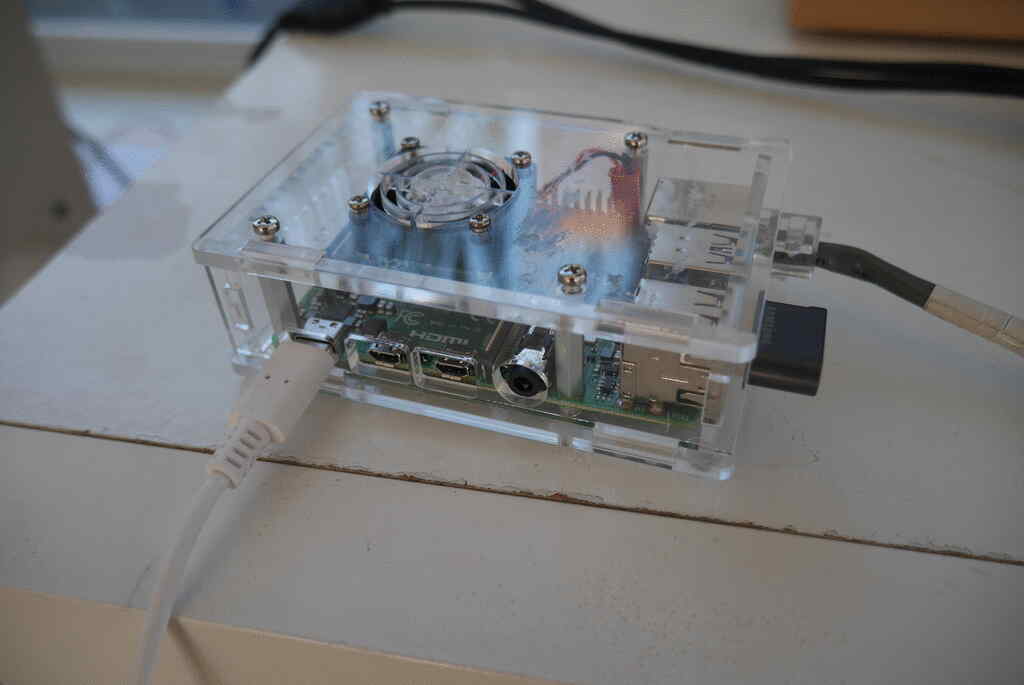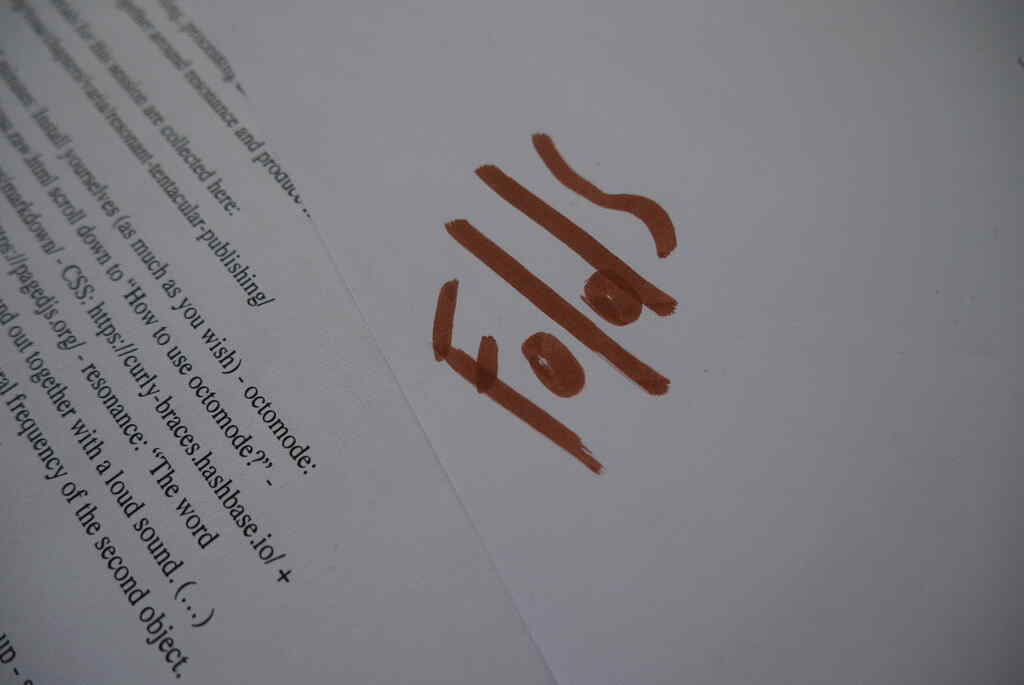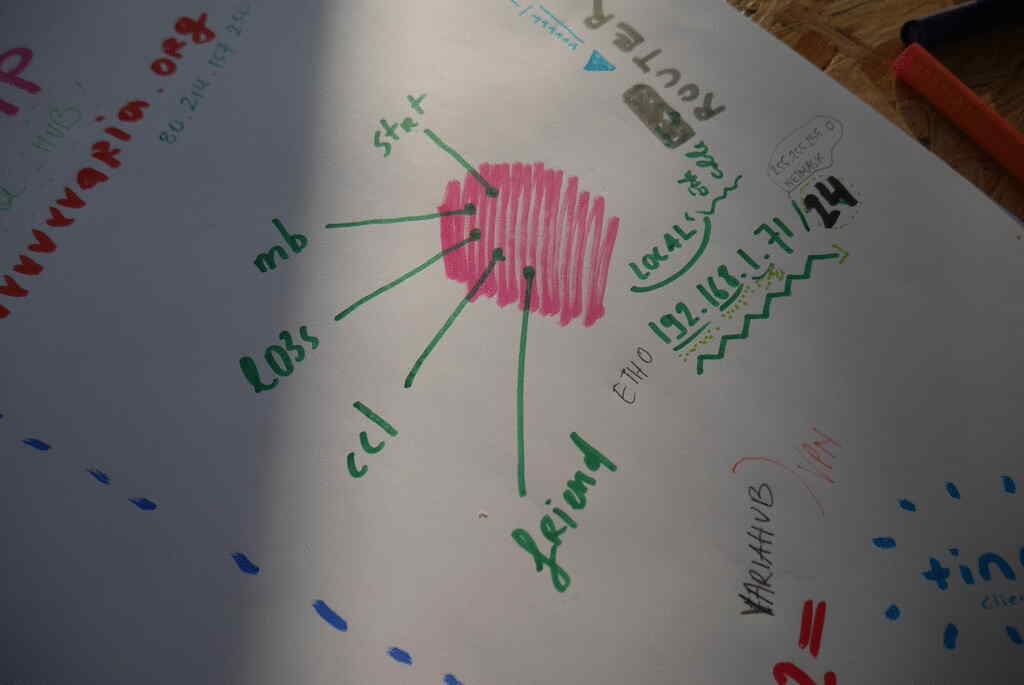---
---
title:
title:
octomod
ATNOFS infrastructuree: rosa
language: en
language: en
---
---
<!--
|
__ __ _|_ __ _ _ _ __ __| _
/ \_/ | / \_/ |/ |/ | / \_/ | |/
\__/ \___/|_/\__/ | | |_/\__/ \_/|_/|__/
This document is opened in octomode.
pad : all materials for the PDF are collected here (written in Markdown)
stylesheet : all CSS rules for the PDF are collected here (written in CSS)
html : render the structure of the lay out as a HTML (with PyPandoc)
[note] this view does not render any styling!
pdf : render the lay out as a PDF (with Paged.js)
https://git.vvvvvvaria.org/varia/octomode
-->
<!--
v _____ v _____ _ _ v _____ v ____ ____ _ ____
\| ___"|/ |_ " _| |'| |'| \| ___"|/v | _"\ v v| _"\ vv /"\ v | _"\
| _|" V | | /| |_| |\ | _|" R \| |_) |/ \| |_) |/ \/ _ \/ /| | | |
| |___ /| |\ v| A |v | |___ | _ < I | __/ / ___ \ v| |_| |\
|_____| v |_|v |_| |_| |_____| |_| \_\ |_| A/_/ \_\ |____/ v
<< >> _// \\_ // \\ << >> // \\_ ||>>_ \\ >> |||_
(_V_) (_A_)(_R_) (_I_)(_A_) ("_)(__) (__) (__) (_P_)(_A_)_D_) (__) (__)
Welcome to the etherpad-lite instance hosted by Varia!
You are most welcome to use it but please take note of the following things:
VISIBILITY:
- The pads are not indexed by search engines, but anyone that knows its URL is welcome to read and edit it.
PRIVACY:
- The contents of the pads are not encrypted, meaning that they are not private.
- Anyone with access to the server has the possibility to see the content of your pads.
RETENTION:
- We make our own backups, meaning the the contents of all pads sit on our harddrives potentially indefinitely.
- Because the identity of a pad author cannot be confirmed, we don't respond to pad retrieval requests.
ACCESSIBILITY:
- If you rely on the content of these pads, please remember to make your own backups.
- The availability of the pads is subject to cosmic events, spilled drinks and personal energies.
CODE OF CONDUCT:
- Both the physical and digital spaces of Varia are subject to our Code of Conduct <
https://varia.zone/en/pages/code-of-conduct.html
>
If you wish to publish a pad to the Varia etherdump <
https://etherdump.vvvvvvaria.org/
> add the magic word __ PUBLISH __ (remove the spaces between the word and __) to your pad.
-->
<section id="cover">
#
*in octomode*
{ #title }
</section>
<section id="main">
::: {.toc}
## Contents
* Questions
* Introducing rosa: a traversal server
* Installing rosa
* Resonance board
* hub
:::
Octomode is a collective editing space for PDF making, using Etherpad, Paged.js and Flask.
Inspired by the non-centralised, tentacular cognition capabilities of the octopus, we imagined a space in which the artificial boundaries of writing and designing can be crossed; where writing, editing and designing can be done in one environment simultaneously, allowing the format to influence the matter and vice-versa.
```
Edit this text in the PAD view.
Edit the styling in the STYLESHEET view.
Preview the page in the HTML view.
Render it on pages in the PDF view.
```
# Questions
*The following questions were written as part of a short, collective exercise while preparing for the ATNOFS Varia chapter. The exercise is quite simple and goes like this: one person begins by asking a question, and then anyone else can respond by following up with another one. What happens when we can only speak in questions? We did this exercise together for 10 minutes, trying to better define the scope of our relation to rosa. Below you can find a trace of some of the questions which were significant to us at that time. We would like to thank the participants of ATNOFS who have added more questions to this list.
The full list of questions is written on a pad on rosa.
*
:::::::::::::::: {.continuations}
**
Genealogy
** <br> The method of formulating questions based on questions was inspired by a workshop at XPUB, the Experimental Publishing Master in Rotterdam, which was organised by Camilo García A., Floor van Meeuwen and Kendal Beynon.
::::::::::::::::
What is a feminist server? \
What is an intersectional feminist server? \
How is rosa a feminist server?\
How does rosa operate?\
What does operate mean?\
Does operate mean work?\
Does work mean labour?\
Is this labour paid?\
Is this work around rosa elitist or niche? Is it available for all?\
Is niche the same as elitist?\
Does getting to know rosa involve commitment?\
What barriers are there in making that commitment?\
What makes us feel like we can trust each other?\
Can we think of rosa in plural?\
How is rosa different if it runs on the same software as other servers (which don't say they're feminist)?\
What is the difference between a feminist server and a server maintained with feminist principles?\
What is the difference between a community server and a feminist server?\
Will rosa have time to rest
or go to
sleep?\
What does it mean to personify rosa?\
Why is rosa given the label of feminist?\
How is rosa intersectional?\
How is personifying rosa with a female name affecting our relationship with it?\
Does rosa have pronouns?\
## Introducing rosa: a travelling traversal server

r
osa is a feminist server that has travelled to all the locations of the ATNOFS program, providing the infrastructure for documenting the 2-day events and for publishing chapters from each of the six partners of the project (Varia, HYPHA, LURK, esc, Feminist Hack Meetings, Constant). Rosa is not only its constituting hardware or software, but also the multitude of relations which are created around the making, maintening and passing on of this infrastructure: the processes that are performed, the affective charge of their actioning, the community around them.
The polymorphous non-binary assemblage that they are is further iterated in the process of choosing a name for Rosa. The name was picked by Alina as a homage to Rosa Parks and Rosa Luxemburg. From the beginning they were already in multiplicity.
> “Our practical struggle become[s] what it must be: the realisation of our basic principles in the process of social life and the embodiment of our general principles in practical every day action. And only under these conditions do we fight in the sole permissible way for what is at any time ‘possible’." – Rosa Luxemburg
> "Memories of our lives, of our works and our deeds will continue in others.” – Rosa Parks
Rosa emerged from Thursday evening dinners in the homes of Manetta Berends, Cristina Cochior, amy pickles, Julia Bande and Alice Strete, in the North, South, and West of Rotterdam, between January and March 2022. They surfaced from a mixture of motivations, including a wish to learn about system administration and servers in general, a wish to document server practices and share knowledge with political and cultural groups, and a wish to practice feminism in relation to technology by making tools and digital infrastructure. This rhythm of cooking for and with each other, sharing conversation and meals, set the tone for a slow dive into networking technologies in relation to methods from different feminisms. The notes below might contain crumbs from the above mentioned evenings.
<!--
These evening experiments and conversations later inspired the focus of the ATNOFS session: the shifting of the language present within and around the server, the consideration of collective consent whithin computing and community work, as well as resonant publishing. These eventually developed into a series of scripts, which you can find on various pages within this publication. -->
All participants of the ATNOFS chapters are welcome to use, modify, adapt, transform and change Rosa, keeping in mind that modifications should support the group as a whole. It's difficult to fully grasp what this means exactly, but we would like to see Rosa as part of the ATNOFS project, and the communities extending from it, and as such as a server in flux.
## Installing Rosa
<!--During our weekly Thursday night dinners, we found moments of slowing down and installed Rosa together on a borrowed Raspberry Pi in the midst of a global chip shortage. -->
Rosa was installed on a borrowed Raspberry Pi in the midst of a global chip shortage.
<!--Depending on the person hosting the evening, we connected Rosa on big TVs, small external screens, or without a screen at all.-->
We connected Rosa to our home routers, in dusty corners or behind clothing racks in our rooms. We ate raspberry pies on the day that we first installed the operating system and worked collectively from there using `tmux` sessions, slowly running through the installation steps one-by-one, which you can find traces of below. Due to a lack of time to dive deeper into open and sustainable hardware, we installed Debian as a way to leave the possibility open for someone to transport the operating system to another hardware.
::::::::::::::::::::::::: {.notes}
The raspberry pi 3 B+ is a 64 bit computer and uses an ARM processor \
"Broadcom BCM2837B0, Cortex-A53 (ARMv8) 64-bit SoC @ 1.4GHz"
Are other groups and feminist servers writing tutorials about how to install a server?<span class="footnote"><
https://things.bleu255.com/runyourown/Main_Page
></span><span class="footnote"><
https://homebrewserver.club/category/fundamentals.html
></span>
`BIOS` = basic input output system (is a legacy system) \
`UEFI` = Unified Extensible Firmware Interface
How to open port 22<span class="footnote"><
https://linuxconfig.org/how-to-use-ufw-on-debian-10-buster-linux
></span>
we installed ufw to open port 22 \
```
$ sudo apt install ufw
$ ssh ccl@192.168.178.40
$ ssh p_p@192.168.178.40
$ ssh strt@192.168.178.40
$ ssh mb@192.168.178.40
```
Renaming the server to "rosa"
```
$ sudo nano /etc/hosts
$ sudo nano /etc/hostname
```
Adding ssh keys to rosa
```
$ ssh-copy-id mb@rosa
```
Editing the welcome messages
```
$ sudo nano /etc/motd
$ sudo nano /etc/ssh/sshd_config
$ sudo nano /etc/sudoers
```
How to edit the sudo lecture file<span class="footnote"><
https://www.digitalocean.com/community/tutorials/how-to-edit-the-sudoers-file
></span>
```
$ sudo nano /etc/sudoers
```
add the following two lines:
```
Default lecture_file=
/etc/sudoers.unite
Default lecture=always
```
:::::::::::::::::::::::::
## Resonance board
As part of the preparations of the Varia chapter, but also the journey of the traveling server and the events around it, we installed different tools for situated collaborative work. One of them is the resonance board, which operates as the main welcome page of Rosa.
The resonance board is a shared space which gathers and folds pads, messages and files hosted on Rosa. On the resonance board you can start *a new pad*, use *octomode*, use the *shared file system*, traverse the *list of pads* already created, read messages on the *folding board*, and browse the files that have been uploaded to the *chapters* folder.
:::::::::::::::::::: {.continuations}
The resonance board is based on *etherpump* <span class="footnote"><
https://git.vvvvvvaria.org/varia/etherpump
></span>, a friendly fork of *etherdump* <span class="footnote"><
https://gitlab.constantvzw.org/aa/etherdump
></span>, a command line tool written by Michael Murtaugh for Constant that converts etherpads to files. This fork is made out of curiosities in the tool, a wish to study it and shared sparks of enthusiasm to use it in different situations within Varia.
::::::::::::::::::::
<!-- maybe too much?
**How to use the resonance board?**
To start a new pad, you can use the button *pads*. To list your pad on the resonance board, add the magic word `__PUBLISH__` in your pad. Only the pads with this magic word are listed in the resonance board.
Each pad can also be opened in *octomode*, a collective PDF rendering environment.
Each pad can be folded and inserted into the resonance board in the *folds* section in the form of messages. Folds can be used to send updates, invite for editing, share questions, etc.
To add files, such as PDFs or images to the file browsing area, you can use the *file manager* that is installed on Rosa.
**How to use folds?**

Folds are being relayed by the folding bot. The bot facilitates sending messages onto the resonance board. A message can briefly describe what is happening on the pad, or it can simply be a message sent to everyone else using the resonance board.
Folds can be called in the chat of any Rosa pad by starting a message with `<fold>`, followed by your message. The folded message will include your username.
The folding bot is a python script that runs continuously as a background service. The bot checks all the pads for `<fold>` messages every 60 seconds. The code that is used for the folding bot can be found here: <
https://git.vvvvvvaria.org/varia/folding-bot
>
:::::::::::::::: {.continutations}
The code of the folding bot is based on code written by Manetta Berends and Michael Murtaugh in the context of an Etherpad API session at the master Experimental Publishing (XPUB) in Rotterdam.
::::::::::::::::
-->
## hub
As Rosa is a traveling server, we thought about ways to connect it to the internet from different locations, while avoiding that every chapter would need to connect Rosa to their router, find the logins to it and configure it in such a way that Rosa could serve through it. We felt that it was important that we would not have to spend too much time on technical configurations, to make sure that we could focus on the activities that surround the server.
To do this, we installed a *hub* network at the Varia server, through which Rosa could connect to the internet. Once the hub is working, Rosa only needs to be plugged in with an ethernet cable and it is ready to serve.

How does this work? The hub is a VPN, a virtual private network, where as many servers can be added to as you wish. The network is hidden, it only exists between the servers that are added to it, but it works with public entry points. At the moment, this hub only has one entry point: the Varia server. The hub runs on <
https://hub.vvvvvvaria.org
>, a subdomain on the Varia server, which reroutes all the incoming and outgoing traffic to the servers that are part of the hub. So if a request is made to Rosa, let's say <
https://hub.vvvvvvaria.org/rosa/chapters/
>, it first connects to the Varia server, which forwards to the request to `/rosa/` internally, meaning inside the hidden network of the hub. The making of the hub
::::::::::::::::::::::: {.continuations}
Aymeric Mansoux developed the idea of the hub in the context of the master Experimental Publishing (XPUB) in 2019, enabling networked experiments and server related work to be done within the institution. <span class="footnote"><
https://hub.xpub.nl/
></span>
:::::::::::::::::::::::
### Continuing traversally
A brainstorm meeting on March 27 during the Varia chapter.
:::::::::::::::: {.notes}
What happens to rosa when travelling? \
What are the agreements/things that change?
Rosa as person — naming, making “a person” \
\> a decision already taken
\> life and death — it has a deadline, not eternal \
Ephemerality
Maintenance and caretaking — not an urgency, as no one is actually relying on — so it works more as a playground
Historical context — rosa luxemburg, rosa parks, multiple rosas, history of resistance
Changing names according to each chapter
Rosa as plural, multitude of processes: an actuality and something not there / not yet arrived \
Beyond the stages of life and death — less linear, utopia that is always there
Travelling server/changes location \
legislation on server: jurisdisction / physical machine: what is legal/illegal about it \
localisation of the internet / legal frameworks — VPN through varia / Rotterdam \
what is the history of Rosa — what is THIS Rosa resisting to?
collective / travel log , back-ups — also functioning within the other documents and approaches: consent, glossary [lexicon] \
the political gesture of allowing/accessing these questions
Rosa travels: **OPTIONS**/**WISHES**/**FEARS**
* **OPTIONS**: collective log / back-ups, speculating backwards, keep the changes / multiple Rosas / Rosa as technical method
* **WISHES**: for Rosa to travel and let go / share experiences of creating Rosa / different media as storytelling / the snapshotting shall travel / that there is change / find good stories to tell / if 1 chapter runs into problems that there is support
* **FEARS**: that it stays in one single context / liquid [water tight jacket / uncertainties about hardware / lack of accessibility / letting go / runnning out of time / upgrades
::::::::::::::::
:::::::::::::::: {.continuations .meta}
**Continuations**
* A fashionable jacket was collectively made during the weekend to protect rosa while traveling, and hold notes and other items in its pockets. Rosa still needs a waterproof jacket for the change in seasons.
* At the end of this conversation, we made a video together that introduces the questions and topics discussed. You can find it here: <
https://hub.vvvvvvaria.org/rosa/chapters/varia/26-and-27-March-at-Varia/rosa-video-1.mp4
>
* Suggestion about ways of thinking about anti-colonial methods for studying/researching with groups from the CLEAR Lab & Max Liboiron: <
https://civiclaboratory.nl/methodological-projects/protocols-for-guests/
>
::::::::::::::::
</section>
</section>